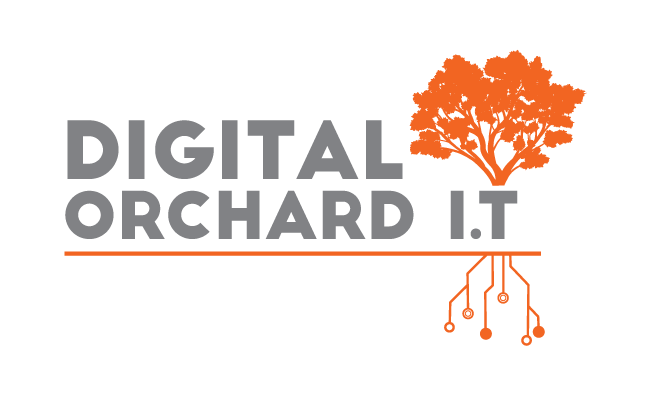
The Complete Guide to Cyber Security – protecting your business
Technology is changing our daily lives for the better. From powerful portable devices to the internet, technology is everywhere. We collaborate with colleagues on the other side of the world, we’re more efficient than ever and we have boundless information at our fingertips. Yet all that opportunity comes at a cost.
The access and anonymity provided by the online world is exposing us to a new wave of criminals – online hackers and cyber criminals can steal our money and personal data with surprisingly little skill or effort.
Hackers cost the UK economy up to £27bn ever year, but criminals who steal valuable data can cause damage far beyond the financial, especially for businesses. The effects of cyber-crime range from digital disruption to lawsuits to long-lasting reputational damage.
And that makes cyber-crime the number one threat to businesses everywhere.
What you need to know about cyber security
Cyber security is more than just protecting your desktop computer or how you send data. And cyber-attacks aren’t solely the problem of big, well-known companies.
Never assume that hacking is something that only happens to other people. Hackers target organisations of all sizes, looking for poorly defended networks and the real killer – complacency. The truth is that hacking can – and does – happy to anyone who takes their eye off the ball.
When it comes to keeping your business safe online, it’s important your IT security includes robust firewalls and anti-virus software, endpoint protection and strict data security.
But are those steps enough? If you’re running old software, or your systems aren’t being regularly maintained, or you don’t have strict data-protection policies in place, then that sad truth is that a hacker will probably find a way in.
The only question is how devastating the cyber-attack will be.
Under the surface of a cyber attack
Businesses are at risk from several types of cyber-attacks, from malware to botnets to phishing to ransomware. Add to this the ever-evolving world of technology, and hackers are becoming increasingly sophisticated in their approach.
Yet most cyber-attacks still rely on a combination of ignorance amongst their victims and a lackadaisical approach to IT security amongst organisations.
Our War Against Hacking Guide explains the most common threats in detail, but what they all share is their potential for chaos and often irreparable reputational damage.
If any of these attacks are successful, they could gain access to the personal and financial data of your team, your business, or perhaps the most damaging, your clients. In an alarmingly short space of time systems can become inoperable, your files lost, and huge amounts of personal data stolen and sold to the highest bidder.
What's the best way to protect against cyber threats?
It’s not a matter of IF your organisation's going to be attacked, but WHEN. According to a recent report, a small business in the UK is targeted by cybercrime every 19 seconds – that’s 65,000 attempts every single day.
It goes without saying that organisations who put IT security low on their list of priorities find themselves in the hottest, deepest water. The effects of even a relatively small data breach can last for months, even years, with many organisations finding themselves completely unable to recover from the loss of revenue, reputation and customers.
Yet a devastating attack doesn’t need to be inevitable and your business doesn’t need to be another statistic. When it comes to protecting yourself against a cyber-attack, the best defence is staying one step ahead of the internet bad guys.
What does that mean in reality? Essentially, don’t assume your systems are properly prepared or that you have an IT strategy in place. This means getting into the nitty gritty of your business and understanding your organisational flaws, and most importantly, finding weaknesses in your systems. You need a strategy that quickly and efficiently deals with vulnerabilities and people who have an acute awareness of the tricks employed by hackers.
Yes, they might still attack, but if you’re properly prepared with strong cyber security defences, they won’t be able to cause any real damage.
Create a robust cyber security strategy
Even with the best plans and precautions, disasters can still happen. The world of cybercrime is so sophisticated that even security experts can’t guarantee that a hacker won’t find a new way to break in.
However, a strong and well-thought out IT security strategy is the best means of defence and not something that should be overlooked. Proper plans, procedures, training, software, backups and regularly maintained systems mean you’ll always have the upper hand. That way any disasters that do occur can be rapidly dealt with and you’ll have peace of mind knowing that you can focus on running your business.
These are our top 5 cyber security recommendations you can implement today to start protecting yourself and your staff:
1. Create a culture of awareness
Around 88% of data breaches are caused by unsuspecting staff members, so make cyber security training a top priority in your organisation.
Run cyber security awareness courses and schedule regular refreshers to ensure that you and your staff are always up to date with the latest threats. Also, don’t assume your staff know what to look out for - the most common attacks include brand impersonation or phishing emails that could fool the savviest of employees.
Remember too that hackers are incredibly opportunistic. Cyber-attacks rose 667% during the first few months of the Covid-19 pandemic - when most when most of us were getting used to remote working, cyber-criminals were using the pandemic to their advantage.
2. Use strong passwords
Sure, having separate passwords for all your different applications is a pain, but it’s better to be safe than sorry. Why? Because hackers have been stealing passwords for years and unfortunately people make it too easy for them.
For example, the most used password of 2020 was ‘123456', closely followed by ‘password’.
Strong passwords include a combination of uppercase, lowercase, numbers and special characters, and they should be changed once a month – and never used on multiple accounts. There’s some great software out there these days that enables you to create (and remember) new passwords without having to mentally keep track.
3.Be careful what you (and your staff) post
We live in a society where it’s become the norm to overshare. This constant stream of personal information has given cyber criminals the perfect opportunity to target victims through social media, quickly finding out where they live and where they work.
To minimise your chances of becoming a victim think about how much information you really want to share with strangers and make it policy for employees never to divulge business details online.
4. Avoid public Wi-Fi
While it can be great to take a break from the office and work from the local café, using free Wi-Fi leaves you wide open to attack. It’s the perfect opportunity for cyber-criminals to steal passwords, customer data and banking details, quickly spreading viruses between multiple devices.
If you or your workforce are going to work remotely, use a VPN (Virtual Private Network) to secure your connection, and be sure to turn off sharing on your device settings.
5. Develop a multi-layered approach to IT security
The most important tools in your cyber security arsenal are robust, up to date anti-virus software and firewalls which should be constantly monitored and regularly updated.
It’s also essential to ensure that all software is regularly updated to avoid any vulnerabilities hackers could exploit. Old, outdated computers also pose a significant threat, so undertake regular inventories of your entire system, schedule licensing renewals and be sure to create regular back-ups so you don’t lose data.
Where do I start with my IT security?
We know that there’s a lot to take to consider when it comes to cyber security - but times like these provide an ideal opportunity to learn about your business and its cyber security approach. Check in with your staff early, evaluate your systems and highlight any gaps in your processes.
If you’re looking to implement a new IT strategy, or need extra support with keeping your business secure, why not contact us for a chat. We’ll talk you through the best cyber security solutions for your business, whether you’re looking for an overhaul or if you aren’t sure where to start.

